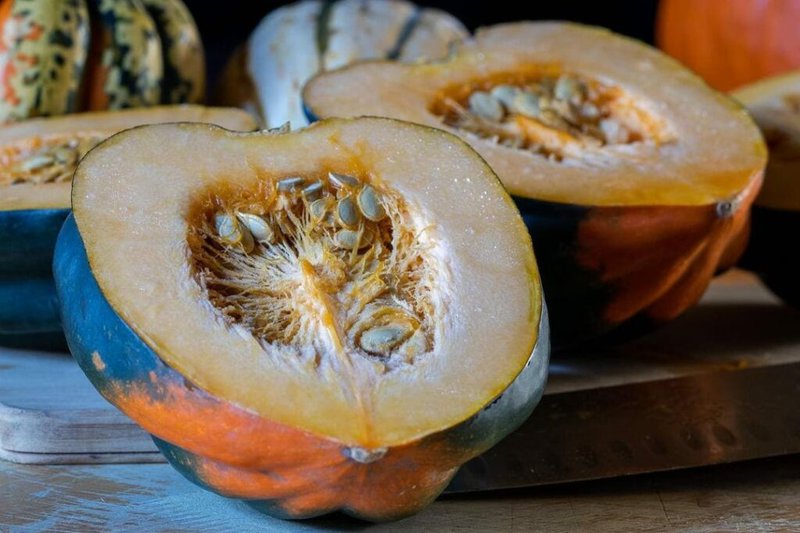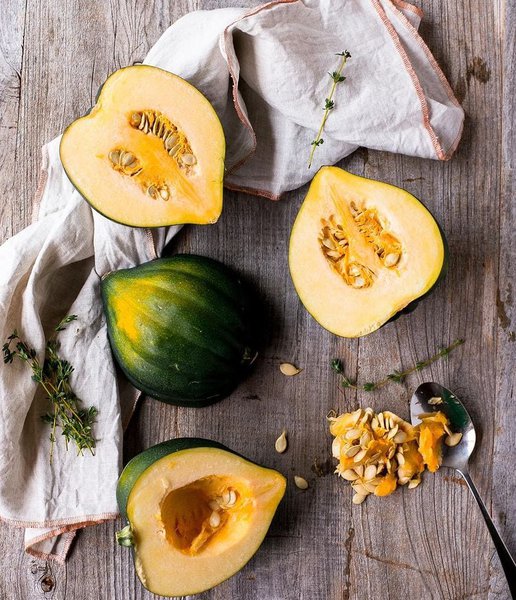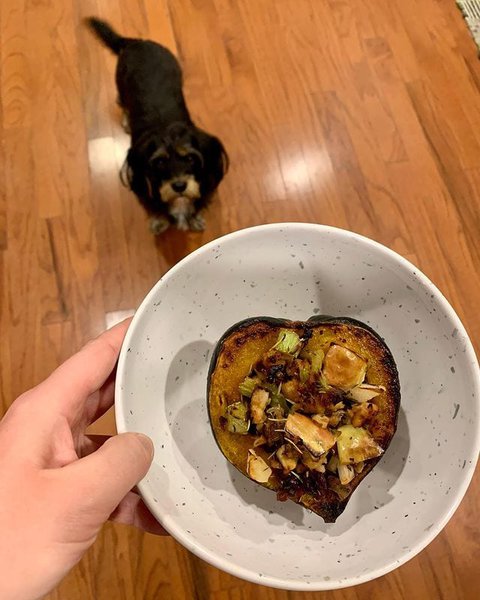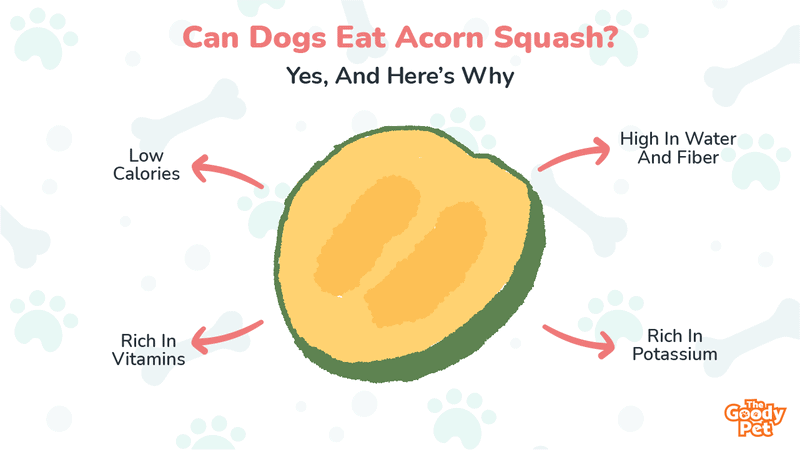There is nothing more tempting than your dog’s eyes while you’re cooking or eating. However, sometimes it can be challenging to know if the food is safe for your dog to consume. A good example would be acorn squash which is a healthy and delicious vegetable to humans, but what about dogs? If you’re wondering if your dog can have a taste of acorn squash, I did the research for you, and here is what I found. So, is acorn squash safe for dogs?
Yes, acorn squash is perfectly safe for dogs to consume. In fact, it is a great treat for dogs to have and contains nutrients, such as vitamin A and beta carotene, vital to better eye health. This fruit also has an impressive amount of potassium that helps prevent disorders like hypokalemia and is high in fiber which can help dogs’ bowel movements.
While there is no harm in giving your dog acorn squash, there are still things you need to consider before feeding your dog the meal. Therefore, we will walk you through the benefits, risks, and ways to feed your dog this delicious treat. Keep reading to find out more.
Can Dogs Eat Acorn Squash?

If you want to share a piece of acorn squash with your dog but you’re still wondering if it is good for your dog, then the good news is, you can serve your dog with the squash without having to harm your dog.
This can only be true as long as you serve it the right way and in moderation. In fact, acorn squash can be an excellent meal for your dog as it is full of important nutrients, especially for older dogs.
Benefits Of Acorn Squash For Dogs
Acorn squash provides a wide range of benefits and nutrients. Some of those benefits include;
- High in vitamins – Acorn squash boasts lots of vitamin A and beta carotene, which come in handy to improve the dog’s health.
- Rich in potassium – This fruit helps in maintaining the electrolyte balance.
- Low in calories – This fruit is an excellent choice for dogs looking to lose weight but can also be consumed by underweight dogs when combined with good sources of fat and protein.
- High in water and fiber to ensure the digestive system runs smoothly. The fiber in the acorn squash also ensures the dogs stay fuller for longer.
Can Acorn Squash Kill Dogs? Is It Bad For Dogs?

No, acorn squash isn’t poisonous or toxic, so that it won’t kill your dog. However, there are potential risks that arise as a result of feeding on acorn squash.
Are There Any Dangers to Feeding Your Dog Acorn Squash?
Yes. Although acorn squash is considered generally safe for dogs, there are a few dangers and risks you should be aware of;
- Never serve your dog raw acorn squash. Uncooked raw acorn squash is difficult to digest and may lead to digestive problems. Fortunately, dogs don’t like acorn squash and would probably not want to eat it.
- The seeds and the skin of the acorn squash may pose digestion difficulties. Although very rarely, this may also cause an intestinal blockage that could be deadly.
- How you cook the acorn squash can make it very dangerous for dogs to consume. Adding seasoning and spices is not recommended.
- If you’re giving your dog acorn squash, yet you’ve prepared it for your consumption, ensure it doesn’t have ingredients like onions or garlic, as well as excess butter or salt, as they are all considered harmful to dogs.
How Much Acorn Squash Can Dogs Eat?
Generally, dogs should only eat approximately a tablespoon of squash daily. However, the amount depends on a number of factors, including the size of the dog, the breed, etc.
If it is the first time you’re giving your dog squash, don’t start with too much right away. This is because you will only risk upsetting the dog’s stomach.
You could start with a teaspoon or less, then gradually increase the amount as time goes by. Then, once the dog is well adapted to it, you can start feeding it as an occasional treat.
How Do You Prepare Acorn Squash For Dogs?
If you have decided to introduce acorn squash to your dog’s diet, it’s now time to find out how to prepare and the best way to serve the acorn squash. Here are some tips you should consider when preparing acorn squash for your dog.
Buy Organic Acorn Squash
It is always better to buy organic squash if your budget allows it. Oftentimes, conventional produce is exposed to pesticides during the farming process.
Choosing organic acorn squash is the best way to reduce any potential exposure to pesticides. Furthermore, organic farming is more sustainable and environmentally friendly.
Wash Your Acorn Squash Thoroughly
The journey acorn squash travels from the farm to your fridge is a long one, and it gets handled by lots of people. As a result, you want to ensure that the dog is not consuming any bacteria when consuming the acorn squash.
Always wash your squash thoroughly before you begin the preparation.

Cooking Your Squash
Before you begin cooking, it is always a good idea to remove the seeds and take the skin off because such things can affect your dog’s digestive system.
The best way to cook your acorn squash is by steaming it. However, you can also roast it but make sure you don’t add anything fancy to it.
If you choose to serve raw squash (which is not advisable), ensure it is chopped up in small pieces or blended into a puree. This ensures your dog can chew and swallow it easily.
Avoid Seasonings
Humans love adding seasonings and spices to their food, but when it comes to dogs, they are not healthy and could potentially cause some health problems. This is because dogs’ stomachs are sensitive and are not built to withstand intense seasonings.
Although a little salt or rosemary might not hurt your dog, it is always a good idea to keep the acorn squash very simple to prevent digestive system issues.
Use Acorn Squash As A Treat
While acorn squash features great nutrients and vitamins, it is not the only meal that you should feed your dogs. Like humans, dogs require a well-balanced diet that is filled with different types of nutrients and vitamins.
Dogs should have squash as a special treat and in moderation. However, they should only consume it with a combination of other healthy meals.





